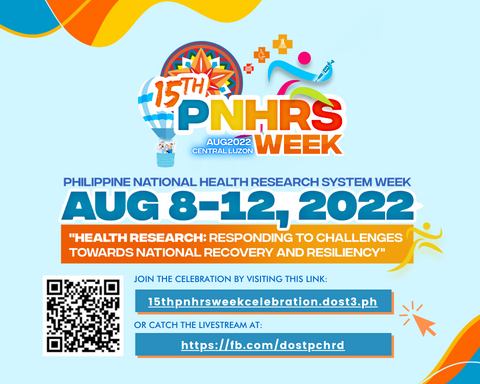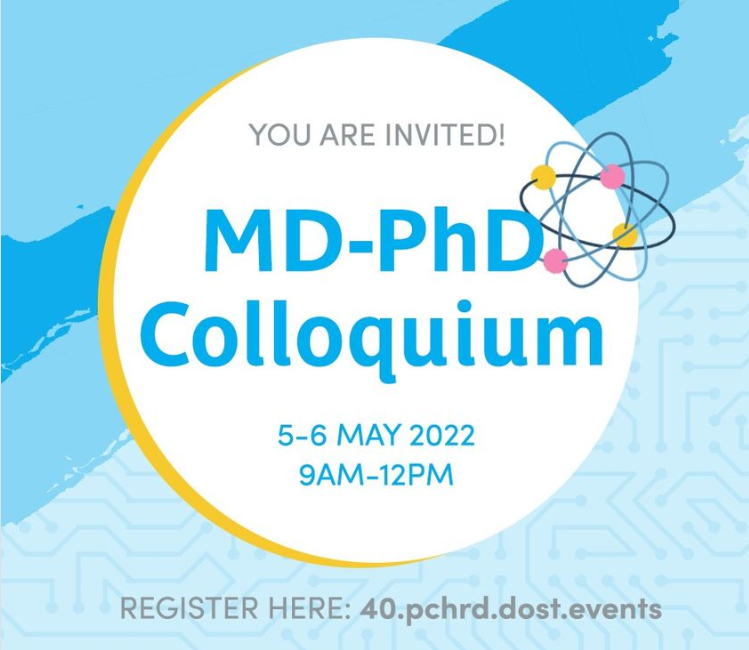
To highlight the role of health research in national recovery and resiliency, the 15th Philippine National Health Research System (PNHRS) Week celebration will gather stakeholders to share their expertise and experiences in health R&D on August 8-12, 2022 at Clark Marriott Hotel, Pampanga.
Hosted by the Central Luzon Health Research and Development Consortium (CLHRDC) together with the Department of Science and Technology (DOST) Region III, the celebration will be conducted in a hybrid format using both face-to-face and virtual set ups to ensure compliance to health protocols, following the recommendation of the Regional Inter-agency Task Force.
Themed “Health Research: Responding to Challenges to National Recovery and Resiliency,” the PNHRS Week celebration will serve as a platform for the health research community to share their insights, best practices, and experiences in developing innovative solutions to contribute to national recovery towards achieving resilience through health R&D.
Composed of pre-conference sessions such as workshops, meetings, and competitions and main conference events where three plenary sessions are scheduled, the face-to-face setup is expected to be attended by 250 invited participants, while live broadcasts will be available to all registered virtual participants.
“This year, we banner the theme “Health Research: Responding to Challenges towards National Recovery and Resiliency.” Along with our thrust for a strong recovery and a pandemic-resilient healthcare system, we highlight the importance of health research and innovation,” DOST-PCHRD Executive Director Dr. Jaime C. Montoya says. “As with all such conferences, including this year’s PNHRS Week, we want to initiate discourse, and advocate for research-based solutions from across disciplines in healthcare,” he adds.
“Health Research has always been in the forefront of innovation and this year’s conference is another gateway to come together to enhance our health policies, improve our healthcare system and make adaptive, feasible solutions as we recover from the COVID-19 pandemic. May this event celebrate the resiliency we have shown as we respond to our current and future public health concerns,” says CLHRDC Vice Chair Dr. Maria Corazon I. Flores.
The PNHRS Week is celebrated every second week of August in accordance with Presidential Proclamation No. 1309 of June 2007.
Interested participants may register through: https://15thpnhrsweekcelebration.dost3.ph.
For more updates on the upcoming PNHRS Week celebration, you may visit the DOST-PCHRD Facebook Page, CLHRDC Facebook Page, or the PNHRS Website.







